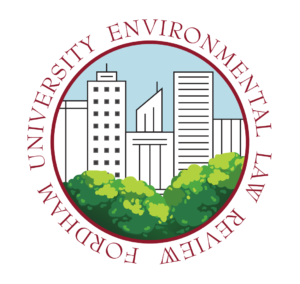MAHA: Make America Hurt Again
Caroline Johnson
ELR Staffer (Class of 2026)
In 1938, the United States started using perfluoroalkyl and polyfluoroalkyl substances (PFAS) with the creation of Teflon, a non-stick coating used on cooking pans. The U.S. has continued to use PFAS because they resist degradation, giving these synthetic chemicals an abundance of industrial and commercial uses. However, this resistance is a double-edged sword because they are “forever chemicals.” PFAS have spread extensively into drinking water, soil, and food while continuing to be used in personal care products, household goods, and industrial manufacturing.
According to the EPA, PFAS exposure has been linked to increased risks of certain cancers, decreased fertility, increased blood pressure, developmental effects or delays in children, reduced immune response, increased cholesterol, and hormone disruption. Increasing use of PFAS has led to a rise in public concern and calls for regulatory action.
Despite the known health risks associated with PFAS, the Trump administration has implemented a series of environmental deregulations weakening protections against PFAS contamination. On January 20, 2025, President Trump issued the “Regulatory Freeze Pending Review” executive order, which halted pending regulations across federal agencies, including those aimed at controlling PFAS pollution. While he claimed the order only allows for a routine regulatory review, it actually created the foundation for widespread environmental rollbacks.
Following the executive order, the EPA withdrew a proposed rule that would have imposed federal limits on PFAS discharges from chemical manufacturers. Public health and environmental organizations have criticized this withdrawal, arguing that it will allow continued contamination of water sources. In March 2025, the Trump administration announced a rollback of Biden-era clean power regulations, further weakening environmental protections. The EPA has also narrowed the definition of waterways to reduce environmental protections under the Clean Water Act (easing limits on runoff pollution). While this executive action is not directly related to PFAS, it reflects a broader deregulatory agenda with a disregard for water safety.
The scale of the current environmental deregulations under EPA Administrator Lee Zeldin are unprecedented. Former EPA administrators, including those who served under Barack Obama and George H.W. Bush, have condemned Zeldin’s actions. The Trump administration–under the Make America Healthy Again (MAHA) initiative and with RFK Jr. as Secretary of Health and Human Services–has emphasized improving public health. However, its deregulation of PFAS directly undermines this goal.
Both PFAS exposure and processed foods are linked to metabolic disorders, immune suppression, and cancer. While RFK Jr. has advocated against harmful food additives in processed food, the Trump administration has weakened PFAS protections, which increases chemical exposure through drinking water. However, this inconsistency reflects a familiar pattern in Trump-era policymaking: championing broadly appealing initiatives while enacting policies that directly undermine their stated objectives.
The Trump administration’s rollback of PFAS regulations represents a significant departure from past environmental policy norms. While Trump states that he is committed to protecting Americans from toxic exposures, he refuses to protect them from dangerous PFAS exposure. As awareness of PFAS contamination grows, Americans must remain vigilant against the Trump administration’s misleading rhetoric and demand that lawmakers hold them accountable for ensuring the safety of water sources and public health.

